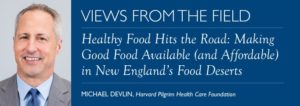Beyond the Exam Room: Impacting Health Outcomes Through Civic Engagement
August marks Civic Health Month, a time to showcase the link between voting and health and celebrate efforts that ensure every voter can support their community’s health at the ballot box. At the same time, the United States is grappling with a health care system ranked 37th globally despite consuming 17 percent of the country’s GDP. With 26 million Americans uninsured and 43 million underinsured, the gap in access to care continues to widen. This crisis will deepen as critical ACA subsidies expire at the end of 2025, potentially leaving 3.8 million more Americans without coverage, in addition to new federal cuts to Medicaid and changes to how coverage is accessed through the health insurance marketplace, which could result in as many as 20 million Americans losing their health insurance.
Protecting Ballot Measures to Protect Democracy
Access to abortion care in Ohio. The chance to support city candidates with democracy vouchers in Seattle. Promoting judicial ethics in Colorado. An $11 an hour minimum wage in Arkansas. What do these policy changes have in common? They were all enacted through the ballot initiative process, and they all support healthy, thriving communities, both in process and in outcome. But multiple states are seeing efforts to curtail the ballot measure process, limiting the voices of voters.
Philanthropy @ Work – Transitions – August 2025
The latest on transitions from the field.
2017 Call for GIH Board Nominations
GIH is seeking nominations for its board of directors for terms beginning in March 2018. Nominations are due Friday, September.
Philanthropy @ Work – Grants and Programs – July 2017
The latest on grants and programs from the field.
RCHN Community Health Foundation Report: July 2017
Compared to doctors’ offices and other providers, community health centers lower the cost of children’s primary care by approximately 35 percent, according to an analysis published by researchers at the Geiger Gibson/RCHN Community Health Foundation Research Collaborative at George Washington University’s Milken Institute School of Public Health.



